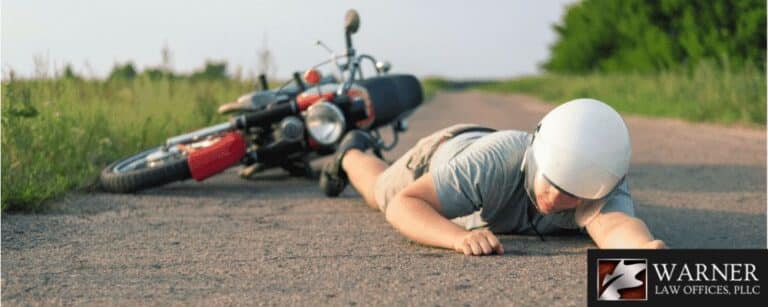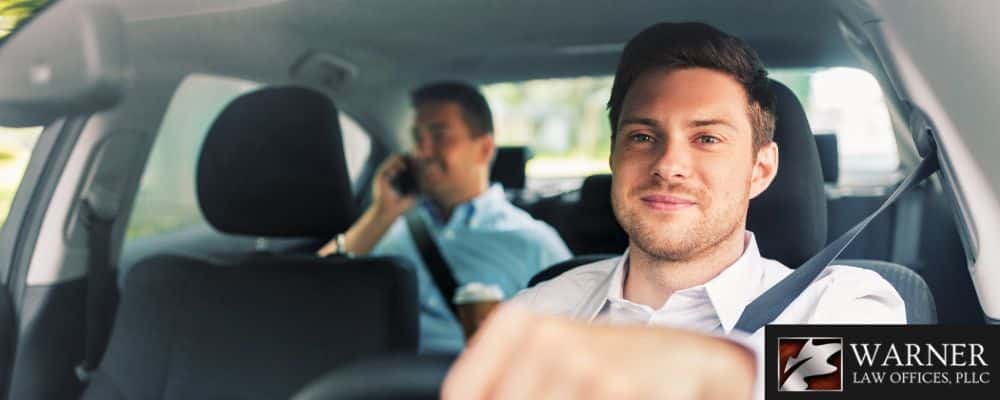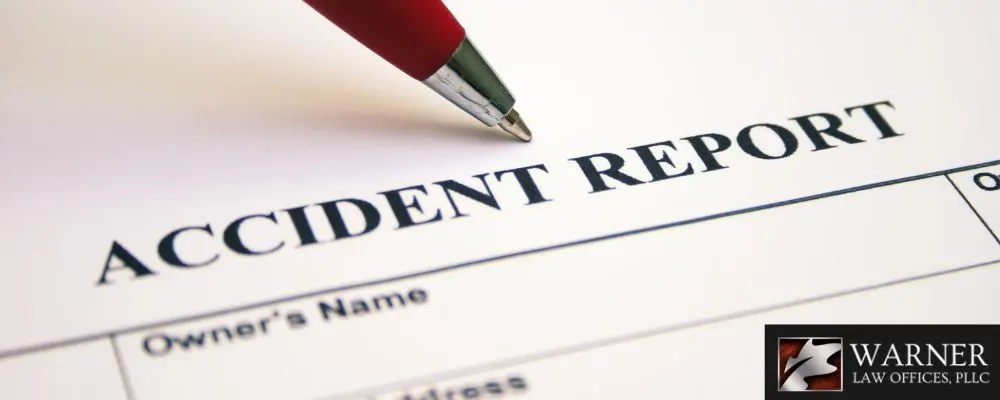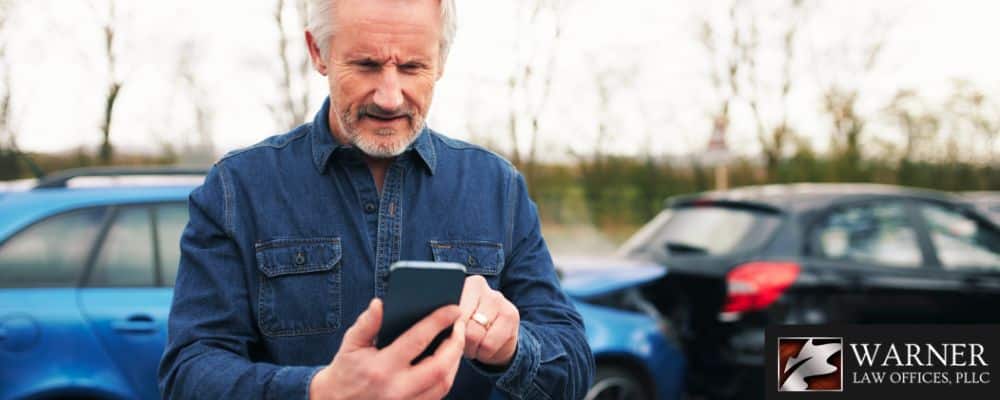
Table Of Contents
- What To Do After a Hit and Run Accident
- What Not To Do After a Hit and Run Crash
- What Are the Consequences for a Hit and Run Driver?
- Does Insurance Cover Hit and Run Accidents?
- Contacting Your Insurance Company
- Will a Hit and Run Raise My Insurance Cost?
- How Can Our West Virginia Injury Law Firm Help You?
Hit and run accidents are particularly frustrating for victims and occur when the at-fault driver leaves the scene of the crash without checking for injuries, offering assistance, or providing identification information. In many cases, these crashes lead to severe injuries and long-term consequences because the victim could not get help right away.
Because it can be difficult to identify a hit and run driver, victims are often left to deal with costly medical bills and other financial struggles on their own. However, you may still have significant options available to claim compensation and seek justice after a hit and run accident.
Our experienced West Virginia car accident attorneys at Warner Law Offices are ready to help you handle the legal aftermath of a hit and run crash. Learn more about our top-tier legal services by exploring our client testimonials. Call (304) 345-6789 or reach out online to schedule your free consultation.
What To Do After a Hit and Run Accident
Unsuspecting victims often don’t know how to handle hit and run accidents. Being injured in this kind of crash can be incredibly stressful, but there are steps you can take after to ensure your safety and protect your right to compensation. If you were injured in a hit and run accident in West Virginia, take the following steps:
- Ensure Safety – If you’re able to do so safely, move your vehicle to the side of the road. Turn on hazard lights to alert other drivers.
- Check for Injuries – Check yourself and any passengers for injuries. If anyone is injured, call emergency services immediately.
- Call the Police – Report the hit and run to the police as soon as possible. Provide them with as much detail as you can about the incident, including the location, description of the vehicle that hit you (if known), and any other pertinent information.
- Gather Information – If possible, gather information from witnesses who may have seen the accident. Note down their names, contact information, and any details they can provide about the other vehicle involved.
- Document the Scene – Take photos of the accident scene, including damage to your vehicle, any debris, skid marks, or other relevant details. This documentation can be valuable for insurance claims and police investigations.
- Note Down Details – Write down any details you can remember about the other vehicle, such as its make, model, color, license plate number (even partial if possible), and any distinguishing features.
- Seek Medical Attention – Even if you don’t initially feel injured, it’s essential to seek medical attention promptly. Some injuries may not be immediately apparent but could worsen over time.
- Follow Up with Authorities – Stay in touch with the police and provide any additional information or assistance they may need during their investigation.
- Notify Your Insurance Company – Contact your insurance company to report the accident and provide them with the information you’ve gathered. Ideally, talk to a hit and run attorney before talking to insurers.
- Secure Legal Assistance – Consult with our hit and run accident lawyers. We can provide guidance on your legal rights and options for pursuing compensation.
Remember to stay calm and focused while dealing with the aftermath of a hit and run accident. Taking these steps can help protect your well-being, ensure your rights are protected, and aid in the investigation and resolution of the incident.


If you’ve been injured in an accident contact Warner Law Offices, PLLC, named the top premier law firm in the U.S.
What Not To Do After a Hit and Run Crash
After a hit and run accident, do not:
- Attempt to chase the fleeing vehicle, which could lead to further harm and legal consequences.
- Delay reporting the incident to the police, as this can hinder the investigation.
- Forget to gather witness information or take photos of the scene.
- Admit fault or discuss the incident on social media, which could result in you incriminating yourself.
- Neglect seeking medical attention, which could exacerbate undetected injuries and compromise evidence in your case.
- Provide false information or exaggerated details to your insurance company, which could jeopardize your claim.
- Try to “take matters into your own hands,” as it may escalate the situation and jeopardize legal proceedings.
What Are the Consequences for a Hit and Run Driver?
Under West Virginia law, drivers who are involved in a crash are required to stay at the scene of the accident and:
- Exchange contact information
- Share auto insurance details
- Provide reasonable assistance to anybody injured
Erin’s Law states that any driver who fails to stop at the crash site and provide information and aid is guilty of a crime. Depending on the severity of the accident, a driver who flees the scene may be guilty of a misdemeanor or felony punishable by a fine and imprisonment.
Does Insurance Cover Hit and Run Accidents?
Whether insurance covers a hit and run accident depends on the type of insurance coverage you have and the circumstances of the accident:
| Uninsured Motorist Coverage (UM) | If you have uninsured motorist coverage, it may help cover damages resulting from a hit and run accident. UM coverage typically pays for medical expenses, property damage, and other losses caused by an uninsured or hit and run driver. In West Virginia, uninsured motorist coverage is mandatory. |
| Collision Coverage | If you have collision coverage as part of your auto insurance policy, it may cover the cost of repairing your vehicle after a hit and run accident, regardless of fault. However, collision coverage usually comes with a deductible that you’ll need to pay before the insurance kicks in. |
| Medical Payments Coverage | Though optional in West Virginia, medical payments coverage (MedPay) may help cover medical expenses resulting from injuries sustained in a hit and run accident, regardless of fault. |
| Health Insurance | If you sustain injuries in a hit and run accident, your health insurance may also help cover medical expenses, including hospital bills, doctor’s visits, surgeries, medications, and rehabilitation. Health insurance can be particularly valuable for covering injuries sustained in the accident, regardless of fault. |
Contacting Your Insurance Company
If you’re injured in a hit and run accident, you should contact your auto insurance provider as soon as possible. Ideally, however, you should consult with your attorney first and let them do the talking. Either way, you should:
- Report the incident as soon as possible to initiate the claims process before important deadlines pass.
- Provide accurate and detailed information about the accident, including the date, time, location, and any witnesses.
- Document the damages and injuries with photos and keep all related documents.
- Cooperate with your insurer’s investigation.
Further, you should avoid:
- Admitting or discussing fault with the insurer.
- Exaggerating or falsifying information.
- Delaying the report as it may affect your claim.
- Accepting a settlement without understanding your rights and options.
Again, it is wise to consult with our skilled attorneys before speaking to your insurer. The West Virginia car accident lawyers at our full-service personal injury firm can help you navigate the claims process and fight for the compensation you’re entitled to under your policy. We can also protect you against insurer tactics designed to pay less than you deserve.
Will a Hit and Run Raise My Insurance Cost?
Whether a hit and run accident will raise your insurance premium depends on many factors, including your insurance company’s policies, your driving history, the severity of the accident, and the laws in your state. Here’s a breakdown:
- Insurance Company Policies – Some insurance companies may raise your premium after any accident, including hit and run incidents, regardless of fault. Others may not increase your rates if you were not at fault for the accident.
- Driving History – If you have a history of accidents or traffic violations, your insurance premium is more likely to increase. Insurance companies consider your overall risk as a driver when determining premiums.
- Severity of the Accident – If the hit and run accident resulted in significant damage or injuries, it may have a more substantial impact on your insurance premium. Insurance companies typically categorize accidents based on their severity.
- Claims History – If you’ve filed multiple claims within a short period, regardless of fault, it could lead to an increase in your insurance premium.
How Can Our West Virginia Injury Law Firm Help You?
At Warner Law Offices, our hit and run accident lawyers are committed to serving our community and helping accident victims pursue justice and get their lives back on track. With founding partner Bobby Warner at the helm, our award-winning legal team is ready to help you explore all legal routes toward compensation. Call (304) 345-6789 or reach out online to learn more in a free consultation.




